VOL- 7 ; ISSUE- 5, PUNE RESEARCH - An International Journal in English (ISSN 2454-3454) JIF 3.02
7.5 ENGLISH
Area of Article : ALL
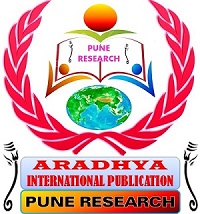
VOL- 7 ; ISSUE- 5, PUNE RESEARCH - An International Journal in English (ISSN 2454-3454) JIF 3.02
7.5 ENGLISH

VOL- 7 ; ISSUE- 5, PUNE RESEARCH - An International Journal in English (ISSN 2454-3454) JIF 3.02
6.3.1 ENGLISH
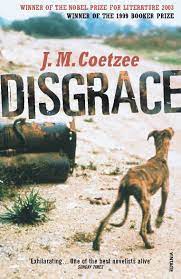
Colonialism is a practice or policy of
economic domination in which a powerful country imposes political, racist,
economic and cultural issues on the colonized groups through exploitation,
degradation and torture, whereas, the term ‘postcolonial’ originally refers to
describe the period after colonization. In his postcolonial novel Disgrace,
J.M. Coetzee has rendered a vivid description of the oppression endured by the
native Africans and how that oppression compels them to be violent. Coetzee
also portrays how the misery and persecution began to take a reverse effect
with the passage of time in the apartheid society. In the post-apartheid
society the white people became the subject to harsh and authoritarian
treatment. The natives took an upper hand and apartheid regime began to lose
its ground. The long unjust racial discrimination against the native blacks
forced them to retaliate the violence and oppression of the white people.
Consequently, the white people became the peripheral and powerless section of
the society. The present paper analyses the struggle between the oppressed and
the oppressor and focuses on the struggles of an uncommunicative college
Professor, his harassment case, tragic situations on his daughter’s farmhouse,
and the balance of power between Negros and white people. The paper also
portrays the struggle of the native Africans who were dominated in the
beginning, and a sense of guilt among the white who were once in dominance in
the changing scenario of an apartheid-free South Africa.
Keywords: Colonialism,
Disgrace, Displacement, Harassment, Postcolonialism, Post-apartheid, Struggle
for power
VOL- 7 ; ISSUE- 5, PUNE RESEARCH - An International Journal in English (ISSN 2454-3454) JIF 3.02
7.5.2 ENGLISH
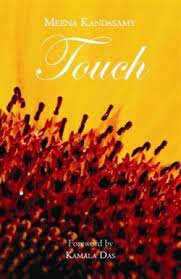
Caste, gender and patriarchy, these concepts
are related with inequality, injustice and exploitation. Caste hierarchy,
divided the society in to four groups: Brahmins, Kshetriya,Vaihsa and Shudra.
Caste hierarchy not only divided the society into four groups it also divided
each group works and duty. Caste gets human being by birth. Human being never
escapes from the caste system. In this computerised- technological and global
era Indian government see the dream of make in India and digital India caste,
still the casteism, gender inequality and patriarchy exist in Indian social
system. Such things are indicated now days also, in each and every field such
in education and employment. Unless and until we do not remove caste and gender
name from the list of educational certificates and employment advertisement,
the mentality of casteism, inequality and indifferences will not be ceased from
Indian social system. Now day’s educated people have become more conscious
about the caste consciousness. But this caste consciousness does not dare to
stop the casteism and gender inequality.
Key words:
Radical Feminism, Intellectual Progress, Inferiority Complex, Secular.
VOL- 7 ; ISSUE- 5, PUNE RESEARCH - An International Journal in English (ISSN 2454-3454) JIF 3.02
7.5.3 ENGLISH
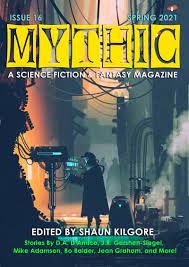
Two famous Indian mythologists, Devdutt Patnaik and Amish Tripathi, have
claimed in this regard, in their interview and fiction respectively, that there
is no universal truth at all but that there are different truths for different
people. Thus, there must be a certain criterion or paradigms that affect the
nature of truth. These paradigms are social agenda, political propaganda,
ethnic, cultural and traditional beliefs, individualistic interest, et cetera.
Though, the nature of these paradigms may differ yet the nucleus through where
it germinates is one i.e., human psychology. Notably, the relationship between
truth and these paradigms is circular where curvatures so intricately
complement each other that no certain preliminary point can be agreed upon. For
example, one believes in a certain ethics because he or she believes it to be
the truth and this certain ethic is the truth for him because he believes in
it. Truth and paradigm are reciprocal.
As paradigms that influence the dynamics of the truth are circumstantial,
truth too is varied. One vital nutrition upon which the truth feeds is fact.
The nature of fact influences truth. The storehouse of concrete fact is
historical records and that of abstract fact is literature. Both are biased as the former is victor based
record and the latter is an author’s perspective. The nature of mythology is
‘beyond truth’, i.e. exempt from concrete proof. The paradigms that affect the
truth also influence mythology. Thus,
both truth and myth are swayed by paradigms which in return complement one
another. This paper presents the mercurial nature of mythology as a widget foil
influencing truth and truth influencing paradigms.
Keywords: Truth,
mythology, Paradigms, subjectivity vs. Objectivity,
VOL- 7 ; ISSUE- 5, PUNE RESEARCH - An International Journal in English (ISSN 2454-3454) JIF 3.02
7.5.4 ENGLISH
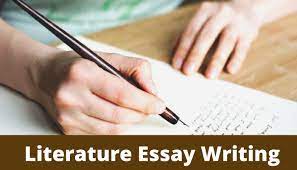
The debate between the importance of literature and language is as old and as tricky as the classic debate between what came first the chicken and egg. None exists without the other. As much as their relationship is inseparable, their impact and relationship on one another is equally vital. Language does not exist in isolation; it is bound with pyscho-socio-politico-cultural features and contexts. Hence literature emerges as a perfect vehicle to embody language. Especially in the context of teaching a foreign language, in this context, English language teaching without the text or literature, is an arduous exercise. There are many advantages of using literature to teach language. Encouraging creative writing as part of ELT to enhance their writing and also speaking ability.
VOL- 7 ; ISSUE- 5, PUNE RESEARCH - An International Journal in English (ISSN 2454-3454) JIF 3.02
7.5.5 ENGLISH
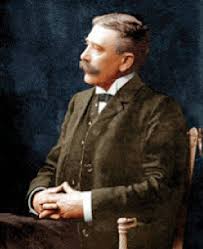
Ferdinand de Saussure is usually referred to as the father of modern linguistics. His contribution to linguistics lay in the following; firstly he made a distinction between two approaches to the study of language: the synchronic approach and the diachronic approach. The synchronic (or descriptive) study of a language is concerned with that language as it exists at a particular point of time. As opposed to this, the diachronic (or historical) study of a language is concerned with the historical development of that language through time. A study of the history of the English language is diachronic. Secondly, de Saussure distinguished between what he called langue and parole. Parole is the concrete manifestation of language either through speech or through writing. As opposed to this, langue is the abstract knowledge necessary for speaking, listening, writing and reading i.e for producing instances of parole. It is the total set o conventions that the members of a language community share. The aim of every linguist is to study this set of conventions (langue) and for arriving at statements about langue he makes use of were! occurrences of speech or writing (parole) as his data. Let us consider the Game of football. In order to play it the Players must agree on a set of conventions regarding the number of players an a team, the function of each player, what is counted as a goal, what is counted as a foul and so on. These rules of the game can be compared to langue. The langue of football, the rules of the game, are an abstract set of principles which are necessary to play concrete game. An individual game of football can therefore be compared to parole. The distinction between langue and parole runs parallel to the distinction between linguistic competence and linguistic performance as given by Chomsky. But, the two differ as the former is sociological and the latter is psychological.
VOL- 7 ; ISSUE- 5, PUNE RESEARCH - An International Journal in English (ISSN 2454-3454) JIF 3.02
7.5.6 ENGLISH
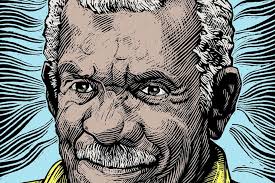
Derek Walcott occupies a unique position in the world of West Indian poetry. His uniqueness as a poet relies in his sincere commitment to his native place and native people. Though he was against all kinds of oppression of the native people by the colonizers he treated his themes most brilliantly with modesty. He took the common people as protagonists or even heroes in his poems. He represented them all in their suffering but their dignity and heroism lie in their ability to bear suffering. This paper deals with how simple the themes that Walcott has chosen including the persons and places and how great the themes he turned into. This is what meant by negative capability of Walcott.
Key Words: West Indian poetry, West Indians, Caribs, Arwaks, The Africans, The Europeans, The Spanish, The Portuguese,VOL- 7 ; ISSUE- 5, PUNE RESEARCH - An International Journal in English (ISSN 2454-3454) JIF 3.02
7.5.7 ENGLISH
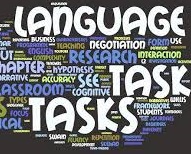
Language
is a tool for understanding, analyzing, expressing and developing one's own
task. There are many approaches in English language teaching. One of the best
approaches is task-based approach. Every language teacher realized the
importance of the learner-centered and flexible approach and demand for
communicative language teaching which helps to understand the language in
context and to use real life situations. The advantage of the task-based
approach, according to its advocates, is during the task the learners are
allowed to use whatever language they want, freeing to focus entirely on the
meaning of their message. In task-based approach the focus of classroom
activities is on the task and ultimately on meaning. Task-based learning offers
the student an opportunity to do exactly this. The primary focus of classroom
activity is the task and language is the instrument which the student uses to
complete it. Task-based activities encourage students to be more ambitious in
the language they use and the psychological dynamics of the group which works
together to complete a task will have great influence on the success.
Key words – Task, flexible, approach, communicative,
language.